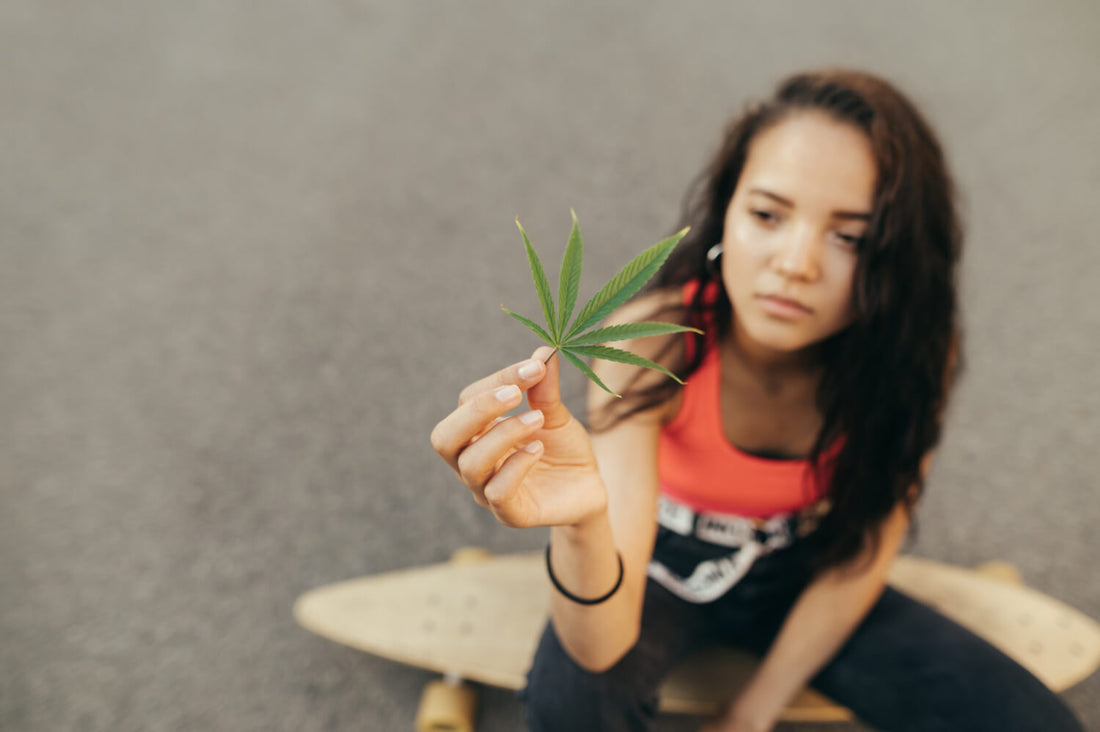CBD is a natural alternative that's becoming increasingly popular with consumers, not least for its soothing, relaxing benefits. It's a wellness solution that's on the rise, but can you cannabidiol be used for stress and anxiety? ? Before youbuying CBDI'll answer your questions in this article.
How do you define stress and anxiety?
Let's begin our investigation with the two most important concepts in this dossier: stress and anxiety. It's important not only to define these two concepts, but also to differentiate between them. Mama to the rescue, I'll explain it all to you.
Stress is defined as state of nervous tension generating natural physical reactions reactions in the body and brain when a situation is perceived as dangerous.
Our heart rate increases, so does our attention, we may start to sweat, we're ready to attack if need be, and so on. Once the danger has passed, the alarm signals go away. However, if the state of stress persists, we speak of chronic stress.
Anxiety, on the other hand, is a little different and harder to describe than stress. It is often regarded as a a feeling of discomfort or temporary danger. The subject then begins to envision the negative in present or future circumstances, giving rise to negative thoughts that are often irrational and exaggerated, and difficult to control and stop.
And as our thoughts often condition our reactions, alert mechanisms are mobilized. You should also know that chronic stress and anxiety are linked and can be experienced simultaneously.
Stress or anxiety: how can CBD help?
Explain in detail the action of cannabidiol and how it works in the body is quite complex, so I'll try to keep things as simple as possible so that you understand how CBD can help with stress and anxiety.
The molecule's major action with regard to these aches and pains is effective on serotonina neurotransmitter notably involved in feelings of happiness and well-being.
In cases of stress and anxiety, levels of this neurotransmitter drop, leading to temporary discomfort, longer-term anxiety disorders or chronic stress.
When CBD is taken, some of the serotonin receptors (known by the acronym 5-HT1A) increase with the synaptic response in the brain, leading to an increase in serotonin levels. serotonin levels.
Furthermore, as I've already explained in some of my other articles, taking CBD stimulates the endocannabinoid system. CBD supplementation activates CB1 and CB2 receptors, in particular by reconnecting them. Increased production of endocannabinoids is thus triggered, leading to improved circulation of anandamide and helping to limit its degradation. We know that anandamide plays a role in anxiety and depression.

CBD and stress: the scientific view
I've already mentioned this in some of my other articles, but CBD research is still in its infancy and studies on the subject are multiplying. So we don't yet have a set opinion on CBD and stress, but some of the results are very promising.
For example, back in 2011 a CBD study study showed that CBD acts on the limbic and paralimbic parts of the brain, which are also known as the emotional brain. Subjects who received cannabidiol instead of a placebo reported a clear improvement in their anxiety levels. improvement in their state of anxiety.
In Australia, one center even specializes in the study of CBD. Among its many studies on cannabidiolone of them involved a group of 31 teenagers (aged 12 to 25), all with a diagnosed anxiety disorder. They were given a dose of 200mg of CBD daily for one week, then 400mg for the following 11 weeks. At the end of treatment, 42.6% of subjects reported less severe anxiety attacks.
Of course, these are just examples of the many studies being conducted. So, even if CBD is considered a non-hazardous non-hazardous moleculewe're still waiting for a firm conclusion on the effects of CBD, but it seems to be becoming clearer.
How to use CBD to combat stress?
Cannabidiol is a molecule that can now be found in many forms, from raw CBD flowers to more processed CBD resins. So.., the form doesn't matterWhat really matters is the quality of the product, the dosage and the timing of consumption.
It's best to opt for a full-spectrum CBD product, i.e. one that contains not only CBD, but also a multitude of other cannabinoids. All the molecules work in symbiosis for a multiplied effect. In terms of dosage, I advise you to take your time and gradually increase the amount of CBD.
Just be aware that there's no universal dose and you can't overdose, but we recommend starting with around 30 mg of CBD a day. There's no best time to take CBD for stress, but knowing that CBD also helps relaxation and can make you feel tired, it's recommended to take it in the evening, about 2 hours before bedtime, every night.
Discover our CBD oils !
Can CBD help you cope with stress?
In conclusion, CBD can be taken to help cope with stress and even relieve the effects of anxiety. Cannabidiol is a promising promising supplement for these studies are very positive, particularly for treatments lasting several weeks or even months.
CBD also appears to have very few contraindications, except for pregnant and breast-feeding women. Of course, medical medical advice is always imperative. Similarly, if you're taking any medical treatment, consult your doctor to make sure it's compatible with CBD. Mama's opinion: it's validated!


![Trim CBD 🧉 [Greenhouse]](http://mamakana.com/cdn/shop/files/TrimCBD_1_62bc19c6-8b2f-416e-aa10-70da357ae351.jpg?v=1720017738&width=533)



![Banana Cream CBG 🍌 [Greenhouse]](http://mamakana.com/cdn/shop/files/banana.jpg?v=1683038126&width=533)



